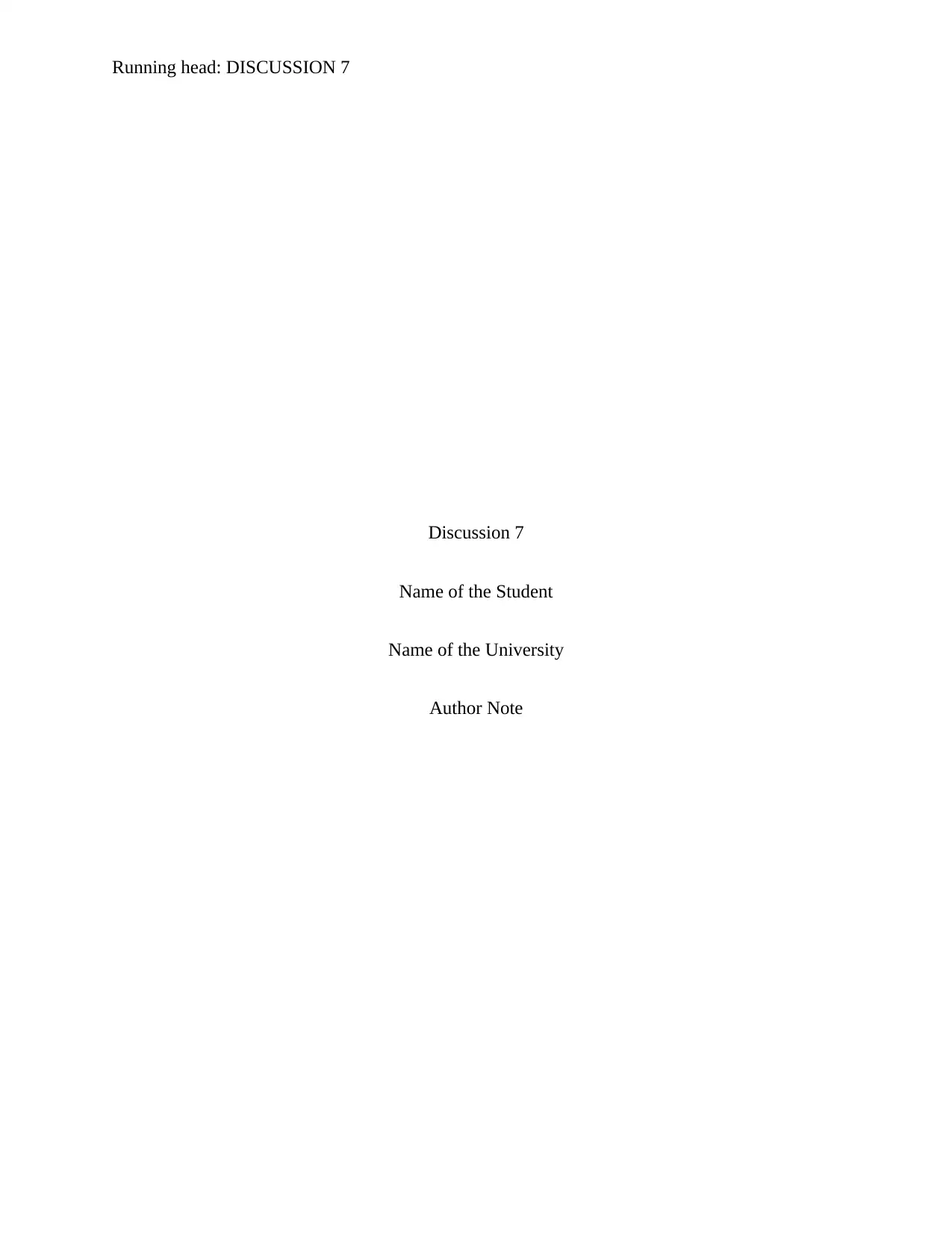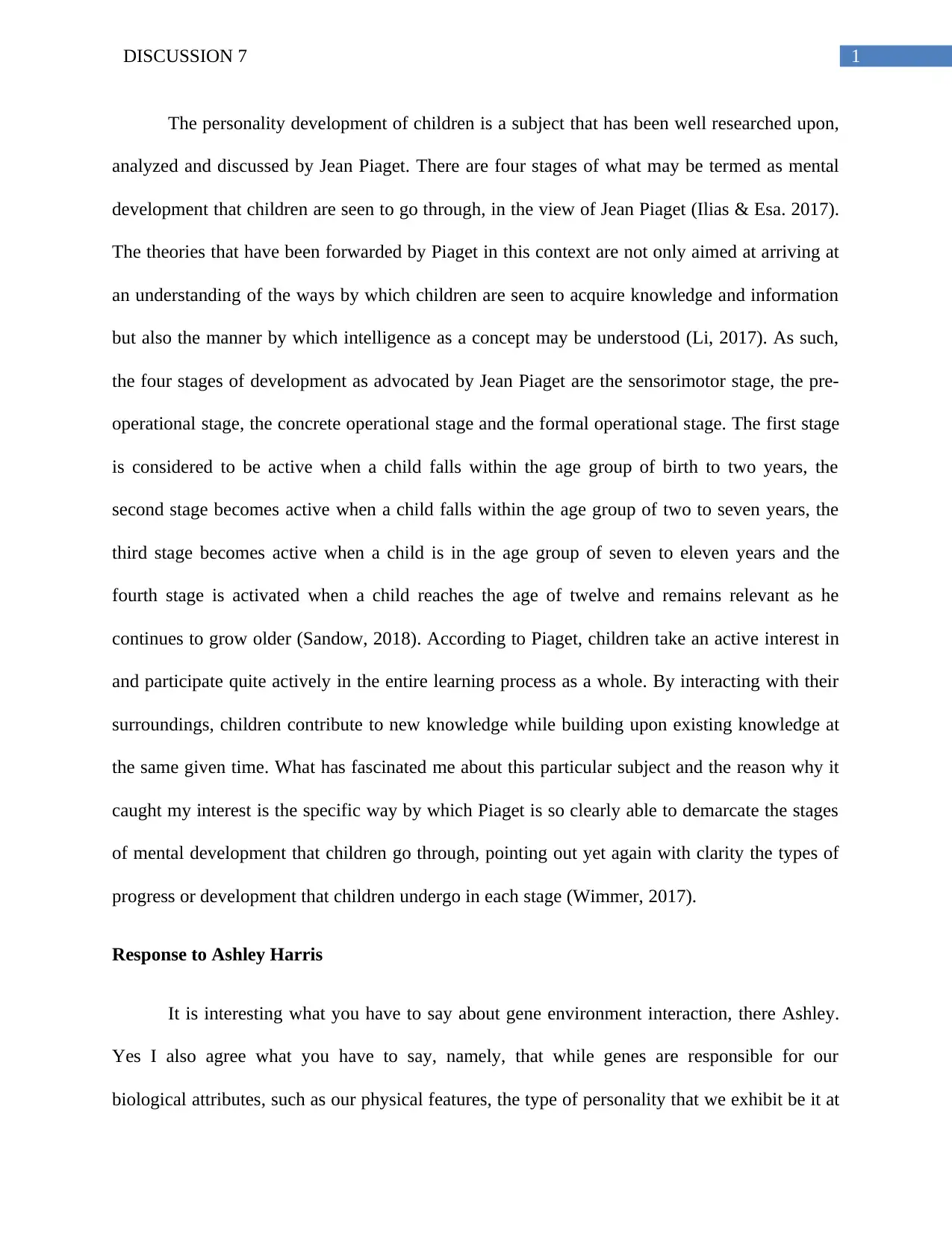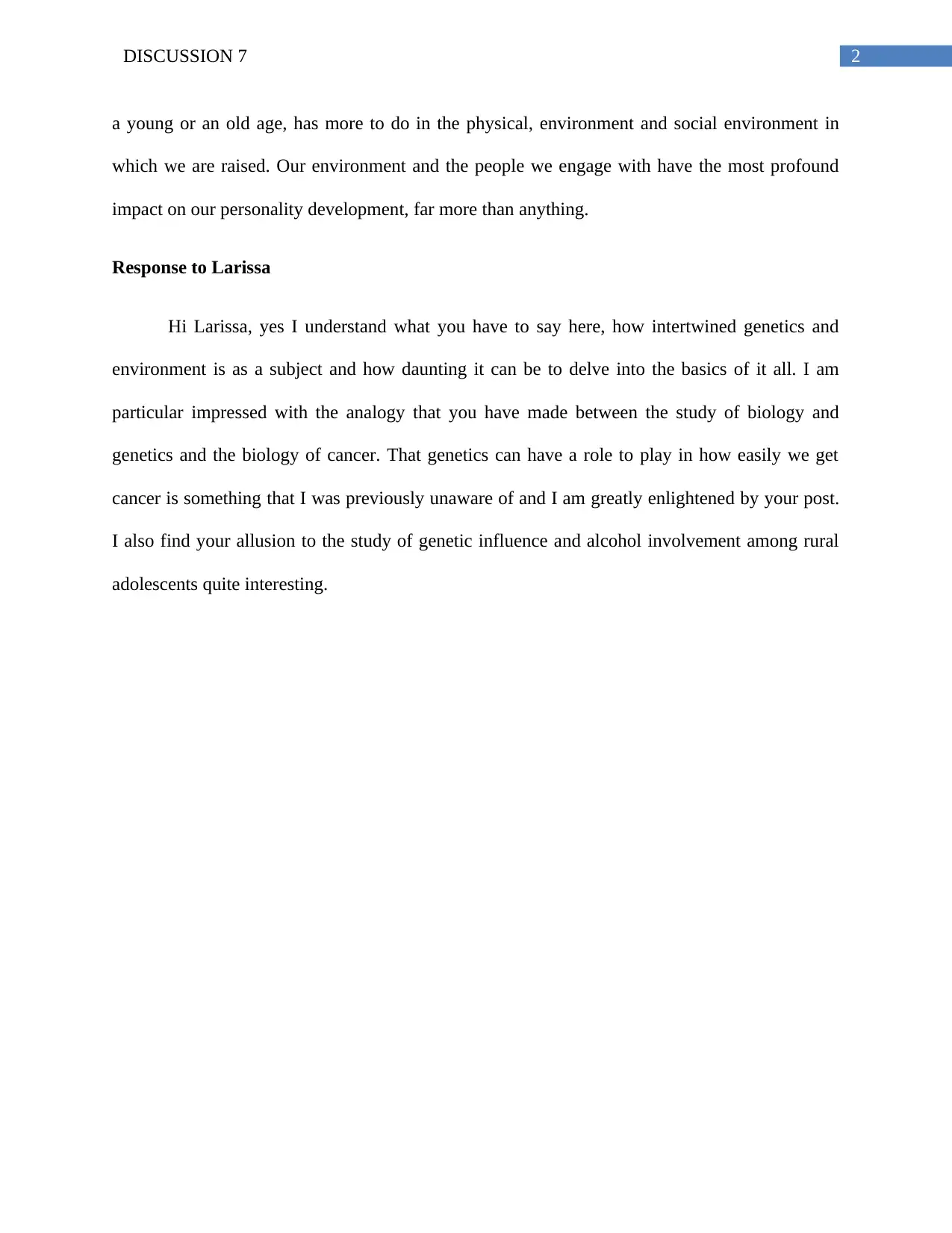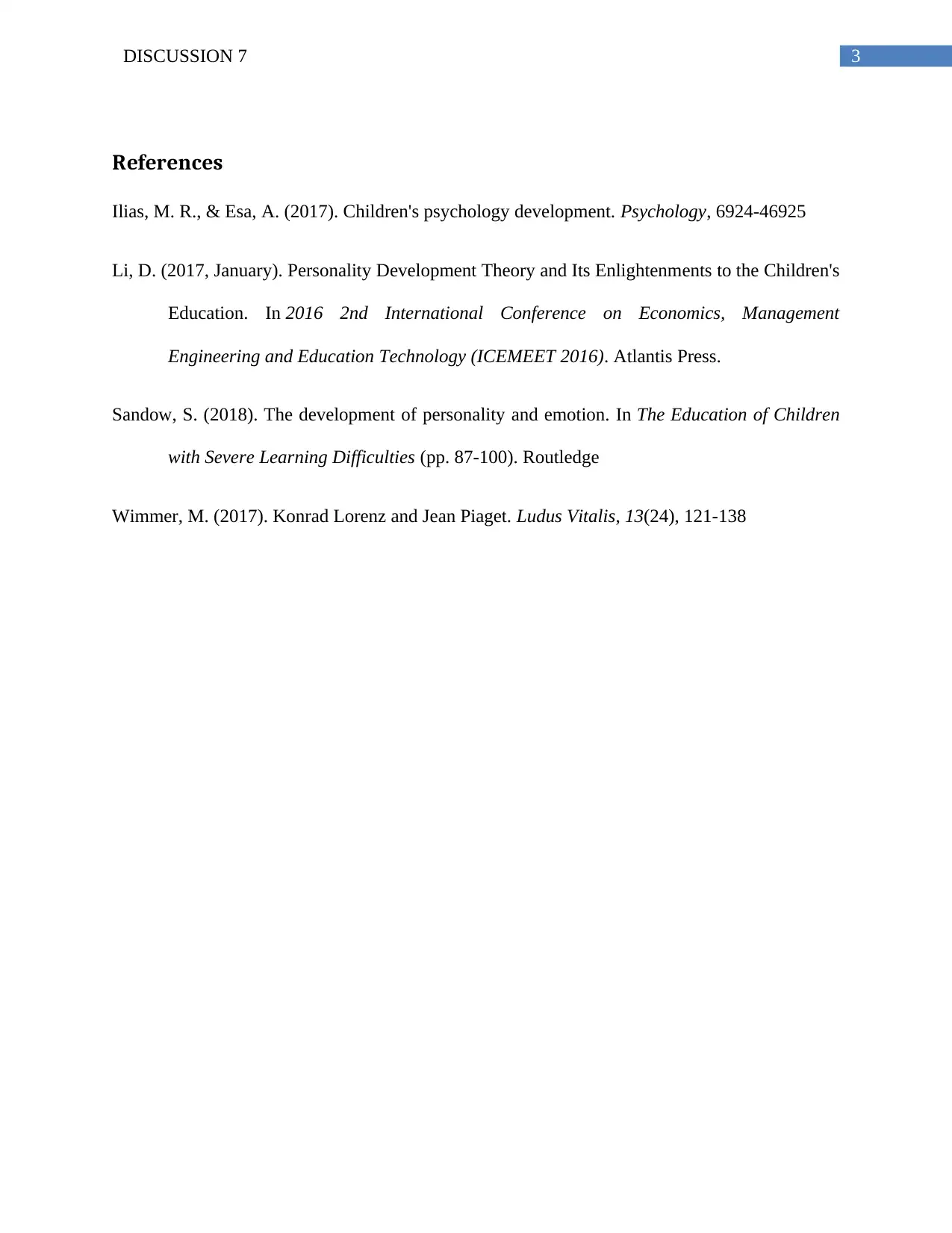Psychology Discussion 7: Child Personality Development Theories
VerifiedAdded on 2022/08/26
|4
|697
|19
Discussion Board Post
AI Summary
This discussion post delves into Jean Piaget's theories on child personality development, outlining the four stages of cognitive development: sensorimotor, pre-operational, concrete operational, and formal operational. The student highlights the active role children play in learning and building upon existing knowledge through interaction with their surroundings. The post includes responses to fellow students, Ashley Harris and Larissa, discussing the interplay of genetics and environment in shaping personality and the implications of genetic influence, referencing the study of genetic influence and alcohol involvement among rural adolescents. The student finds Piaget's ability to clearly demarcate the stages of mental development fascinating. The post includes a list of references to support the discussed concepts.
1 out of 4











![[object Object]](/_next/static/media/star-bottom.7253800d.svg)